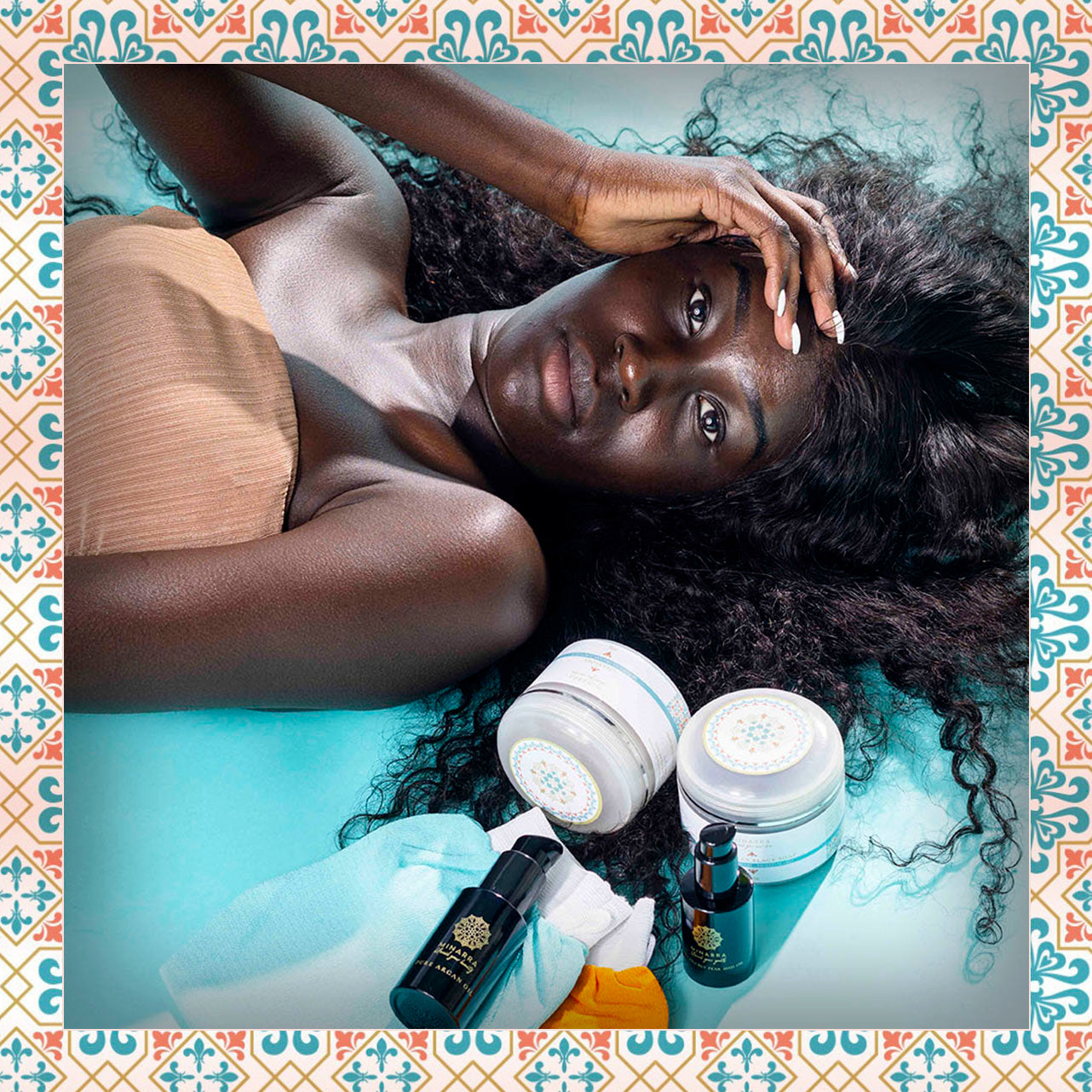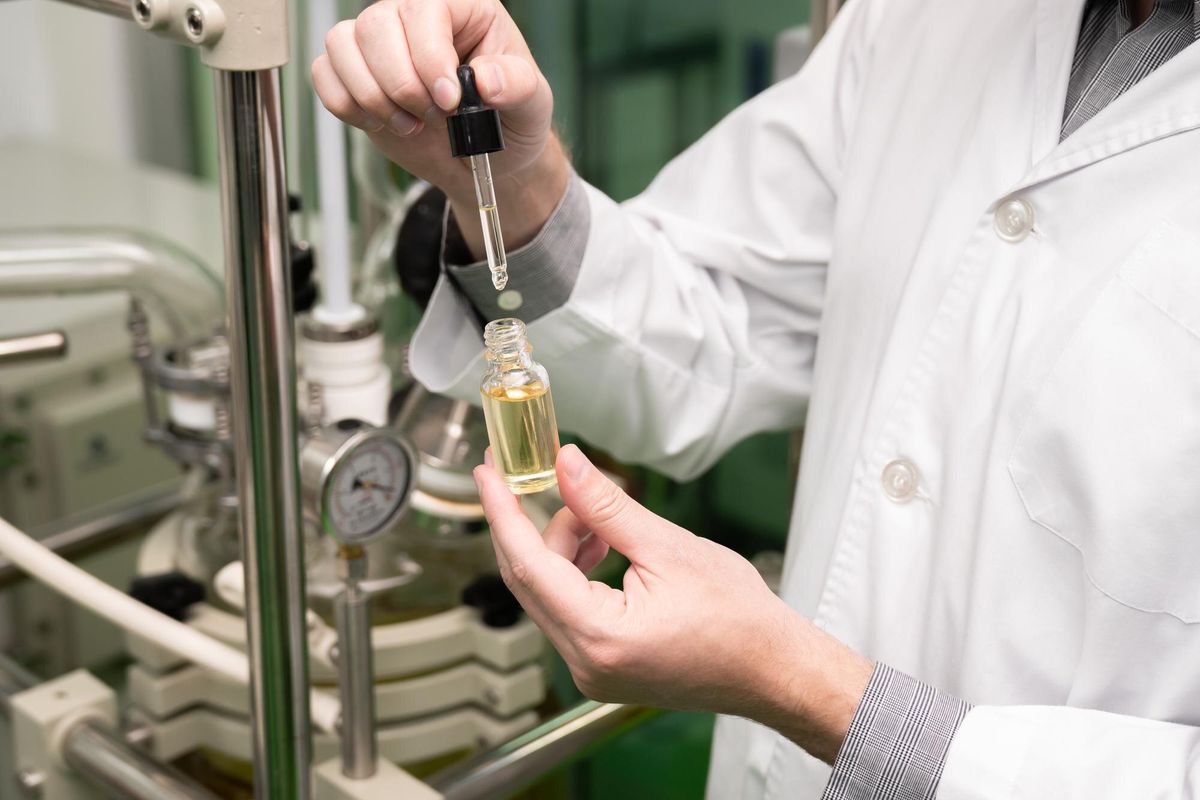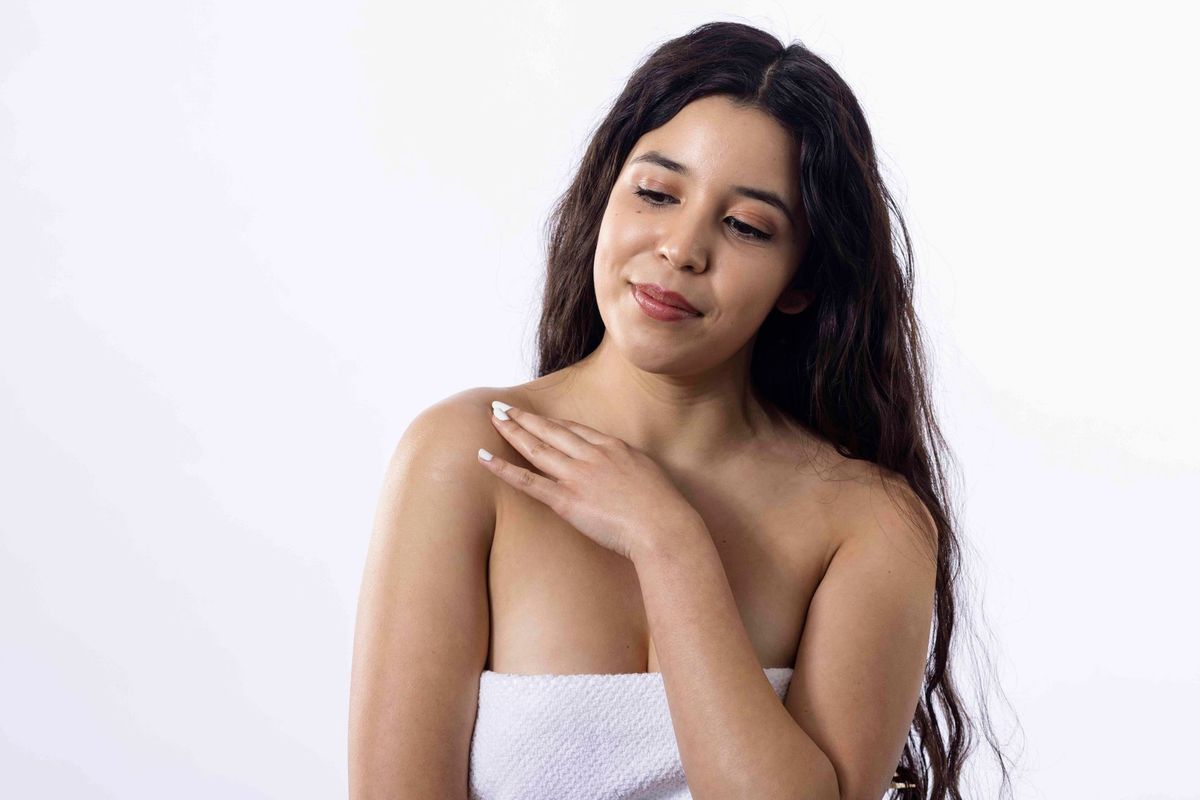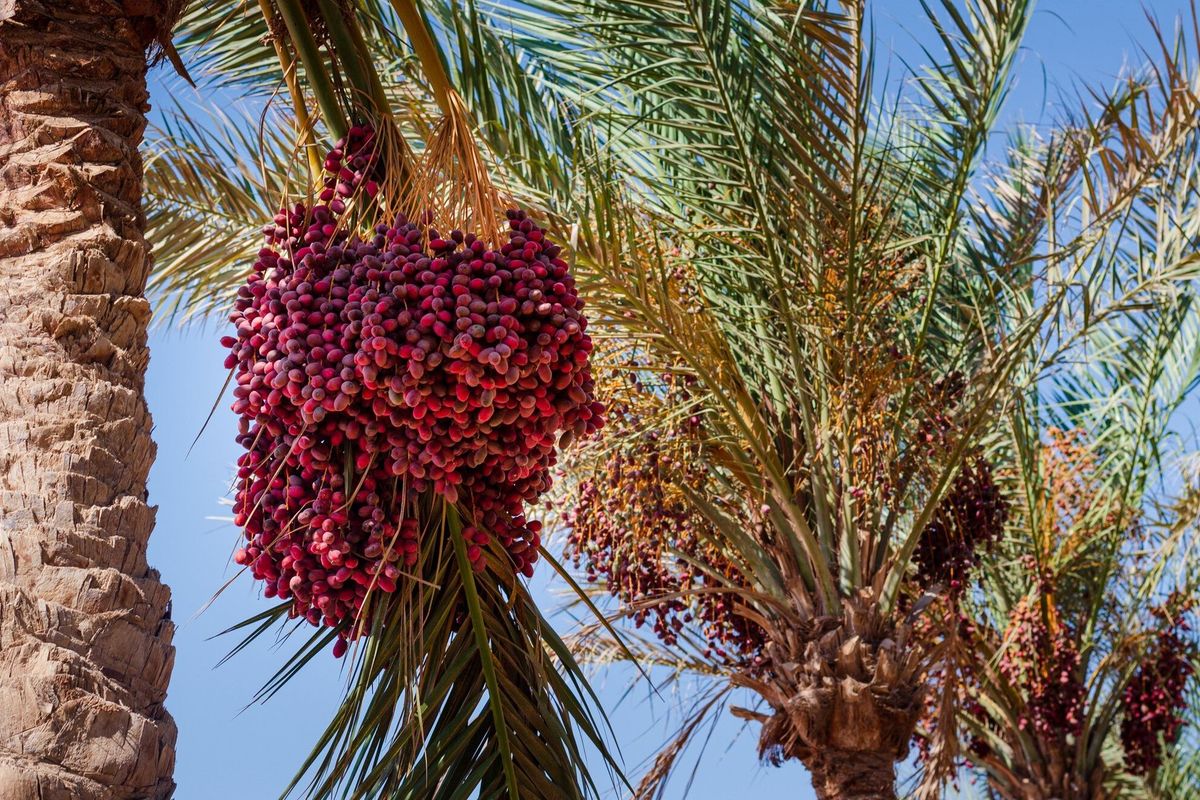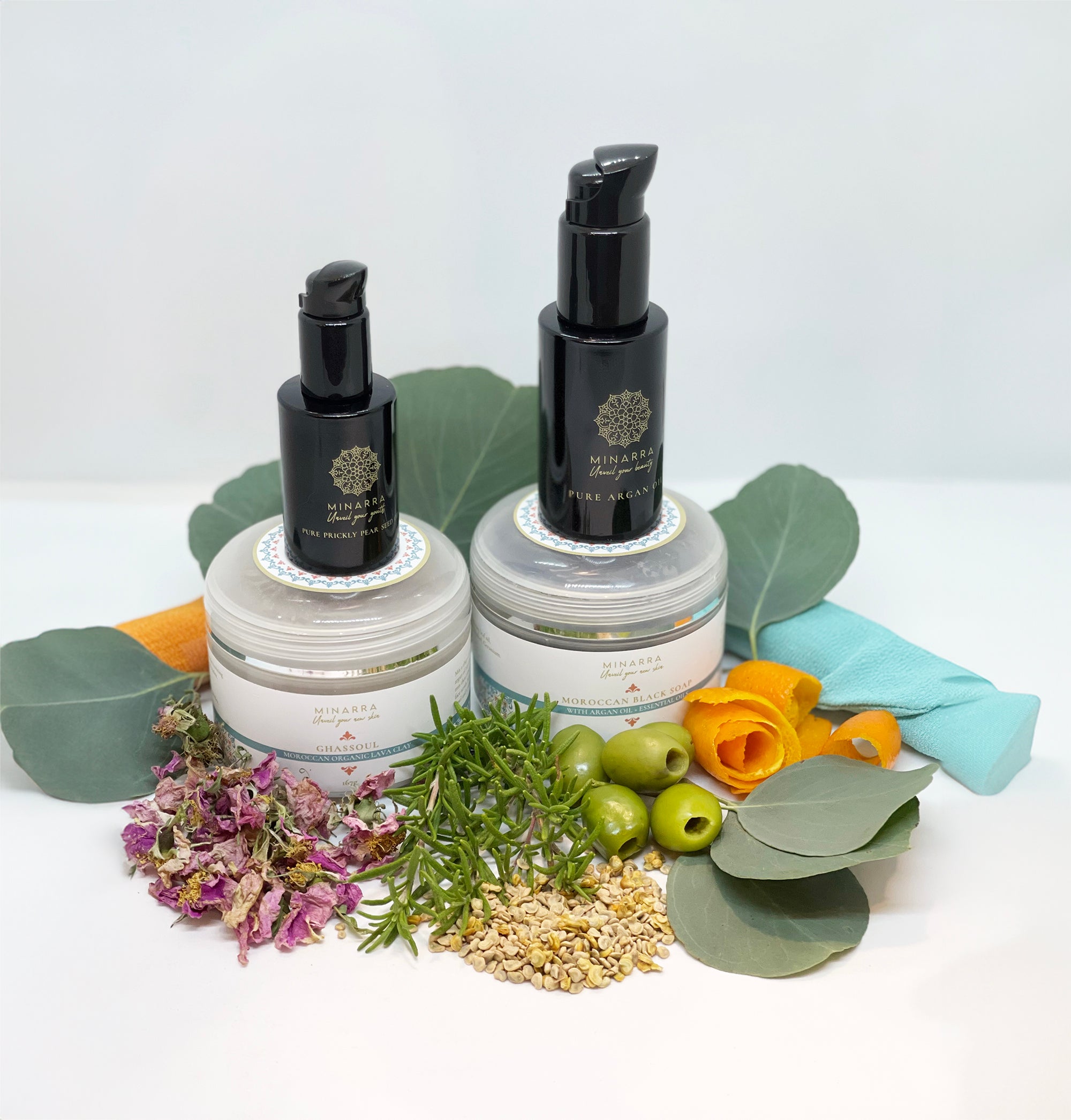Discovering Argan Oil Origins
Argan oil comes from Morocco, where argan trees grow. Its origins in this rich landscape explain its value in kitchens and skincare routines.
Argan oil packs nutrients. It contains omega-6 fatty acids and vitamin E, making it popular in beauty and health. People use it to moisturize skin and add shine to hair.
Traditional methods preserve argan oil's quality. Hand-cracking the fruit extracts the oil, keeping its natural benefits intact.
-
Cultural Significance: Argan oil represents Moroccan heritage.
-
Nutrient Profile: Contains essential fatty acids and vitamin E.
-
Traditional Craftsmanship: Extracted using time-honored techniques.
Geographical Roots of Argan Oil
Argan oil thrives in Morocco, especially in the semi-desert areas like Essaouira and Agadir. These regions offer the perfect conditions for the argan tree, Argania spinosa, to flourish. Known for its resilience, the argan tree adapts well to harsh, dry climates, making it a unique and vital part of the local ecosystem.
Argan trees can live up to 200 years. This longevity plays a crucial role in sustaining the environment, providing shelter and nourishment to various species. The trees’ deep roots help prevent soil erosion, supporting the region's ecological balance.
Morocco's semi-desert regions have become global centers for argan oil production. The unique environment and traditional harvesting methods contribute to the oil's high quality and global appeal. Learn more about the traditional methods and the story behind argan oil, including its impact on local communities, by exploring our detailed narrative on the origins and benefits of argan oil.
-
Resilient Nature: Argan trees withstand harsh climates.
-
Ecological Importance: They prevent soil erosion and support biodiversity.
-
Global Hub: Morocco is central to argan oil production.
Minarra's commitment to ethical sourcing ensures the preservation of these natural resources while supporting local communities. With its rich heritage and sustainable practices, argan oil continues to be a prized beauty elixir worldwide. Discover the extensive health and beauty benefits of argan oil, from deep hydration to anti-aging properties, that make it an essential part of skincare routines.
Traditional Extraction Methods
Argan oil extraction is a careful process that uses traditional methods passed down for generations. It starts with drying the argan fruit to remove the pulp, which is crucial for accessing the nut inside.
After drying, skilled workers crack the nut by hand. This task requires precision and patience. Hand-extracting the kernels preserves the oil's natural benefits, ensuring high quality and nutrient content. To learn more about the extensive health and beauty benefits of argan oil, including its historical significance and ethical sourcing, explore our detailed insights on argan oil's impact and traditional methods.
The process shows a commitment to authenticity. It involves:
-
Drying: The fruit dries in the sun, making pulp removal easier.
-
Pulp Removal: Workers peel the dried fruit to reveal the nut.
-
Hand-Cracking: Workers carefully crack open nuts to extract kernels.
-
Grinding/Pressing: Kernels are ground or pressed to release the oil.
Modern techniques like cold-pressing are also used, aiming to maintain the same nutrient richness. This focus on quality is why authentic argan oil is valuable in beauty products.
The traditional methods respect tradition and support local communities, especially women-led cooperatives. They showcase the skill and effort needed to produce this oil. For more on the benefits and uses of Moroccan argan oil in cosmetics, including its hydrating and rejuvenating properties, see our comprehensive guide on argan oil.
Cultural and Economic Significance
Argan oil is more than a beauty staple. It's a vital part of Moroccan culture and economy, deeply woven into the fabric of local communities. At the heart of this is the empowerment of women through cooperatives.
Women-led cooperatives play a key role in argan oil production. These groups offer economic opportunities, allowing women to earn a stable income and improve their livelihoods. This model supports not only individual families but entire communities.
-
Empowerment: Women gain financial independence through cooperative work.
-
Community Support: Earnings from argan oil bolster local economies.
-
Sustainable Practices: Cooperatives focus on eco-friendly harvesting methods.
Argan oil production also preserves cultural heritage. Traditional extraction methods are maintained, keeping age-old techniques alive. This respect for tradition ensures that the cultural significance of argan oil remains intact. To delve deeper into how these traditional methods are part of Moroccan beauty rituals, you can explore more about Moroccan beauty products and their cultural roots.
The ecological benefits are significant too. Argan trees support biodiversity and help sustain the environment by preventing soil erosion. Their presence is crucial in maintaining the delicate balance of Morocco's ecosystems.
-
Cultural Preservation: Traditional methods honor Moroccan heritage.
-
Biodiversity: Argan trees contribute to ecological balance.
Argan oil's impact extends beyond beauty and culinary uses. It fosters social and economic development, making it a true symbol of resilience and growth in Morocco.
Nutritional and Cosmetic Benefits
Argan oil is valued for its nutrients and versatility in food and beauty products. It contains healthy fats, antioxidants, and vitamin E, which benefit your health.
Argan oil shines in the kitchen. It adds nutty flavor to salads and dips, and enhances dishes as a finishing touch. The healthy fats in argan oil support heart health and boost your immune system.
For skincare, argan oil excels. It moisturizes skin, improves elasticity, and helps with wrinkles. If you have skin issues like acne or psoriasis, argan oil may soothe them with its anti-inflammatory properties.
-
Moisturizing: Hydrates and softens skin.
-
Elasticity: Improves skin suppleness.
-
Healing: Reduces inflammation and aids skin repair.
Daily use of argan oil can enhance your skin's texture and overall health. At Minarra, we source ethically and sustainably. When you use our Moroccan Argan Oil, you support responsible practices and enjoy a product rich in omega-6 fatty acids and vitamin E, known for reducing signs of aging and improving skin texture.
Quality and Authenticity Matters
Argan oil's quality and authenticity are essential for its effectiveness. Ensuring purity involves careful methods to maintain its natural benefits. Genuine argan oil should be free from additives and preservatives, preserving its rich nutrients and properties.
To detect adulteration, look for:
-
Color and Scent: Authentic argan oil has a golden color and a subtle, nutty aroma.
-
Texture: It should feel smooth and absorb quickly without a greasy residue.
-
Packaging: High-quality argan oil is often in dark glass bottles to protect it from light.
Quality control is crucial. It ensures that the oil retains its beneficial properties, like omega-6 fatty acids and vitamin E, which nourish and hydrate the skin. For more detailed insights into our traditional Moroccan extraction methods and the purity of our ingredients, explore our commitment to clean, chemical-free skincare.
Supporting ethical sourcing practices is vital. It preserves the traditional craftsmanship of Moroccan women, empowering local communities. When you choose products from Minarra, you're supporting these sustainable and ethical practices.
Being informed helps you make the best choices. Trust in the product's integrity enhances your experience, ensuring you enjoy all the benefits argan oil offers without compromising on quality.
Culinary Applications of Argan Oil
Argan oil is a beauty staple and gourmet ingredient. Its sweet, nutty flavor enhances dishes, appealing to food lovers.
Drizzle argan oil over salads for a delicious twist. It brings out natural flavors and adds rich aroma. It improves both simple and complex salads.
Dip fresh bread in argan oil for a tasty appetizer. Its smooth texture and distinct taste appeal to adventurous cooks.
In Moroccan cuisine, argan oil shines in dishes like amlu. Amlu is a sweet and savory spread made with argan oil, almonds, and honey. Enjoy it on toast or as a dip.
-
Salad Dressing: Enhances flavor with a nutty twist.
-
Bread Dipping: Pairs well with crusty bread.
-
Amlu Spread: A Moroccan delight with almonds and honey.
Argan oil's versatility and rich heritage make it perfect for trying new flavors. For more insights into Moroccan beauty essentials, explore our guide on what beauty products to buy from Morocco and why, which delves into the cultural significance and benefits of these traditional products.
Wrapping Up Argan Oil Insights
Argan oil comes from Morocco, where it's deeply rooted in local culture. The argan tree thrives in Morocco's ecosystem, producing this prized oil.
Argan oil embodies Moroccan heritage. Local communities, especially women-led cooperatives, craft it using traditional methods. This approach maintains oil quality and promotes sustainability.
Argan oil serves many purposes. It's useful in skincare and cooking. High in omega-6 fatty acids and vitamin E, it nourishes and revitalizes, enhancing any routine.
-
Cultural Significance: Reflects Moroccan traditions and supports communities.
-
Multiple Applications: Useful for beauty and cooking.
-
Responsible Sourcing: Promotes sustainable practices.
Using genuine argan oil matters. Choosing quality products honors the skill and effort behind each bottle. As you use argan oil, you connect with Morocco's heritage and traditions.

